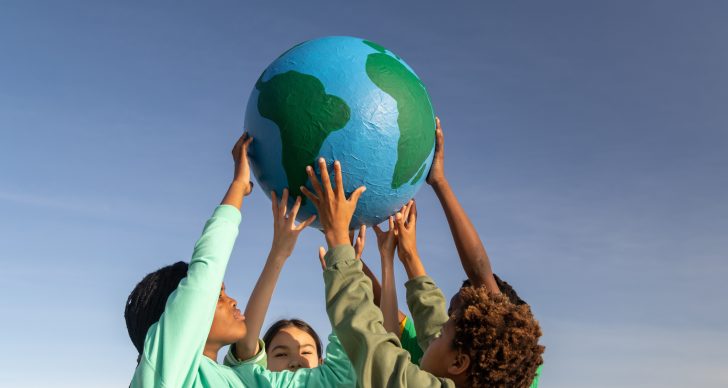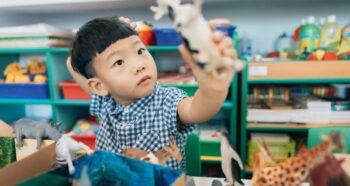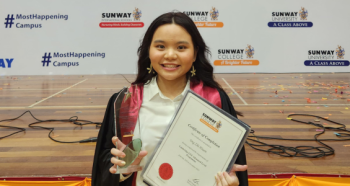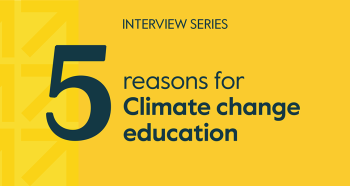So much is being said about Education for Sustainable Development these days, yet, not everyone knows what it really implies.
In this blog, Marcela Villan, an Environmental Management teacher at a Cambridge International school in Argentina shares her insights and tips for implementing Education for Sustainable Development in schools.
What is Education for Sustainable Development?
Education for Sustainable Development aims to make people understand and address the complex challenges of sustainability, such as climate change, biodiversity loss, poverty, inequality, and social injustice by promoting critical thinking, problem-solving, participatory decision-making, and active citizenship. It encourages individuals to become responsible and engaged global citizens who contribute to building a more sustainable and equitable world
How can educators be part of the solution?
Our role as educators has become crucial. Our students must become sustainable change-makers to create a better world for their future so we must provide them with the knowledge, skills, values, and attitudes that will let them achieve that.
At Modern School, a bilingual school in Lanús, Buenos Aires, Argentina, we understand the importance of this. The fact that our students take Cambridge IGCSE examinations and acquire great knowledge on sustainable development through subjects in the Cambridge curriculum such as Environmental Management and Global Perspectives, shows we are supporting them to take action!
We all know the negative impact that plastics have on the environment, health and wildlife. Plastics are non-biodegradable, which means they do not break down naturally and can persist in the environment for hundreds of years. Improperly managed plastics can end up as litter, contaminating land, rivers, lakes, and the ocean. Plastic pollution has become a global environmental crisis, threatening marine ecosystems, wildlife, and human health.
As one of their Environmental Management teachers, addressing the plastic pollution problem was one of my goals and raising awareness of the seriousness of the issue was the first step. We called an NGO ¨Botella de Amor¨ (Bottles of Love), who fill plastic bottles with non-recyclable or hard-to-recycle plastics turning these into low-cost, insulating building materials for use in small-scale construction projects such as garden walls. We started this project nearly four years ago as a way to talk about how to prevent plastic from ending up in rivers, landfills and oceans.
Since then, we have done it every year with different groups of students and the motivation keeps on rising!
Becoming part of the solution to the problem was an amazing opportunity for them, and their families are also participating by bringing their already-filled bottles to school for the project.

Education for Sustainable Development emphasises the importance of local context and community engagement, recognising that sustainability challenges are often deeply rooted in local realities and require context-specific solutions. It promotes participatory and inclusive approaches that involve diverse stakeholders, including communities in decision-making processes related to it. It highlights the interconnectedness and interdependence of social, economic, and environmental issues and this can be clearly seen in our project.
Educating students on sustainable development can be done through various approaches and strategies.
Here are seven tips from our school
How can schools be part of the solution?
- Incorporate sustainability into the curriculum: Global issues such as climate change and water pollution can be incorporated into your lessons and teaching materials. This can be done across different subjects, including science, social studies, geography, economics, and ethics.
- Foster critical thinking and problem-solving activities: Encourage students to think critically about complex sustainability issues and engage in problem-solving activities. This can involve analysing real-world case studies, conducting research, debating different perspectives, and proposing innovative solutions to sustainability challenges.
- Promote active learning and engagement: Provide opportunities for students to engage in hands-on, experiential learning activities, such as field trips, simulations, group projects, and community service projects. This can help them connect theory with practice and develop a deeper understanding of sustainability concepts and their real-world applications.
- Encourage reflection and discussion: Create a safe and inclusive learning environment where students feel comfortable sharing their thoughts, questions, and concerns about sustainability. Facilitate class discussions, debates, and reflection activities to encourage critical reflection, active listening, and respectful dialogue on sustainability topics.
- Model sustainable practices: Set an example by practising sustainable behaviors in your classroom, such as reducing waste, conserving energy and water, and promoting recycling. This can help students develop a sense of personal responsibility and ownership towards sustainable practices.
- Collaborate with local organisations: By bringing in guest speakers, or conducting workshops on sustainability topics in school. This can provide students with real-world perspectives and experiences related to sustainable development.
- Use technology and multimedia resources: Videos, interactive websites, and educational games can be used to enhance students’ understanding of sustainable development and engage them in interactive learning experiences.
In Summary
Remember to always adapt your educational approach to the age, interests, and abilities of your students, and to make the learning experiences meaningful to their lives. Tell your students that every small action counts. Small actions multiplied by a lot of people will produce the big change we need in this world. The world will be a better place just because of these simple actions.
Find out more about our Cambridge IGCSE Environmental Management syllabus What is Cambridge Global Perspectives?
Read more on our commitment to the Environment and Sustainability
Education for Sustainable Development
Does your school have a story to share? We would love to hear from you. Please get in touch with your story ideas at outlook@cambridge.org





